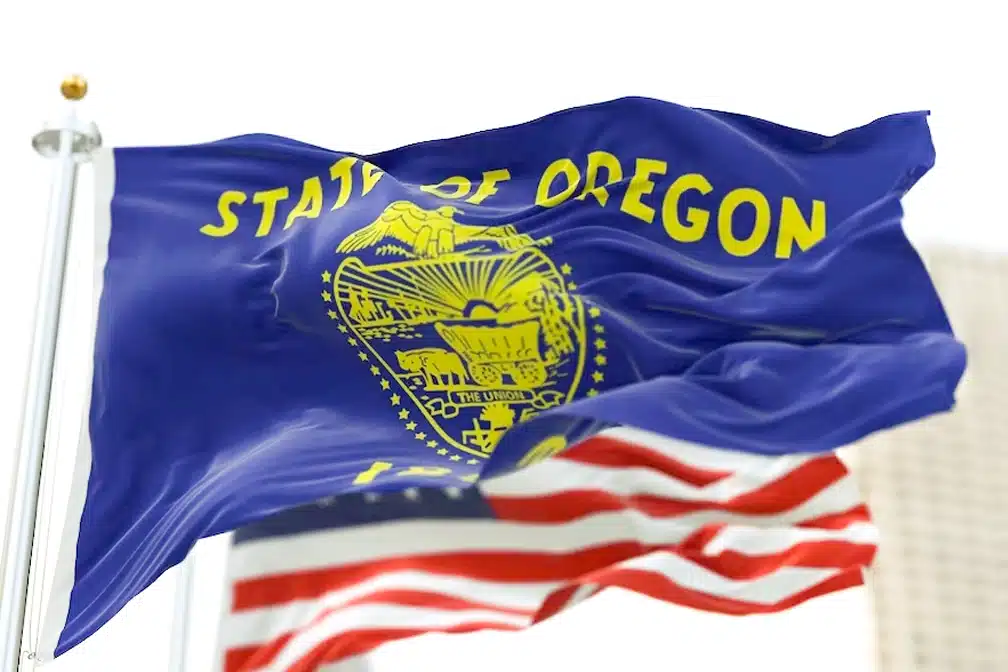April 2024 Truck and Warehouse Jobs shift, with trucking losing 300 jobs, and warehouses adding 7,600 jobs - highlighting industry volatility.
Continue Reading
May 19, 2024 5:46 pm

Oregon’s picturesque landscapes and bustling highways are the backdrop for a legal showdown that has captured statewide attention. At the heart of this dispute lies the Oregon Trucking Association’s legal battle against the state, joined by three prominent trucking companies. Their grievance? Excessive taxation on heavy trucks. Beyond the complex details of tax law, this conflict sheds light on the indispensable role of truck drivers in Oregon’s economy and the imperative for equitable tax practices. Let’s delve into the details of this issue and its ramifications for the trucking industry and the wider community.
Central to the dispute is the contention that heavy trucks bear an unjustly heavy tax burden through Oregon’s weight-mile taxes. According to the accusers, these taxes translate to a staggering daily overcharge of $528,000 collectively. Such a financial strain not only undermines the economic viability of trucking companies but also goes against Oregon’s constitutional mandate for tax fairness. For many small, family-owned enterprises within the industry, this burden is particularly crippling, placing them under extreme financial pressure.
Don’t miss the latest news about the trucking driver news related.
Andy Owens of A&M Transport and Bart Sherman of Sherman Bros. Trucking have become vocal advocates for change, voicing the challenges their companies face. Owens emphasizes the difficult task of sustaining a family business amidst soaring taxes. Sherman speaks to the glaring disparity between taxes collected and infrastructure improvements. Their testimonies offer painful insights into the struggles faced by trucking companies and the urgent need for reform in Oregon’s taxation and infrastructure funding frameworks.
The effects of excessive taxation extend far beyond the balance sheets of trucking companies, affecting communities statewide. As operational costs soar, increased prices for essential goods loom largely, potentially making the financial strain worse for Oregonians. This ripple effect deepens the connection between the trucking industry and everyday life, highlighting the urgency of addressing taxation issues.
The lawsuit spearheaded by the Oregon Trucking Association and allied companies is not merely a quest for financial compensation, but a request for systemic change. It seeks to halt the collection of what is deemed unconstitutional taxes and advocates for a comprehensive review and recalibration of tax rates. What’s more, this legal battle has the potential to evolve into a broader movement, symbolizing a collective stand against perceived injustices in taxation practices.

At the core of this dispute lies an acknowledgment of the important role played by truck drivers in Oregon’s economy. As the lifeblood of commerce, they ensure the seamless transportation of goods across the state. Yet, they find themselves burdened with disproportionate tax obligations, increasing the need for fair treatment and recognition of their contributions.
Relevant News:
The outcome of this legal battle carries profound implications for Oregon’s trucking industry and beyond. It prompts a reassessment of taxation, the fair distribution of tax burdens, and governmental obligations towards essential infrastructure. Additionally, it initiates a broader conversation on the values and priorities that inform tax policies and infrastructure development in Oregon, offering an opportunity for meaningful change.
The battle over truck taxes in Oregon is far more than mere financial disagreements. It represents a cry for fairness, transparency, and sustainability in taxation and infrastructure funding. This legal saga underscores the pivotal role of the trucking industry in Oregon’s economic landscape. It also highlights the need for policies that reflect the contributions and challenges of truck drivers. As the state navigates this messy legal situation, the hope is for a resolution that ensures fair treatment and sustainable support for the trucking industry and the communities it serves.
For more information and articles from the trucking industry, follow us on Facebook or subscribe to our Truck Driver News newsletter.
April 2024 Truck and Warehouse Jobs shift, with trucking losing 300 jobs, and warehouses adding 7,600 jobs - highlighting industry volatility.
Continue ReadingBritish Columbia is taking a stand against commercial truck drivers who compromise the safety of the province's highways by hitting overpasses. This move is not just about
Continue ReadingAs we move through 2024, the trucking industry faces an unprecedented challenge with cargo theft reaching new heights. Experts forecast this year to mark a continuation of
Continue ReadingThe American Trucking Associations (ATA) has expressed strong opposition to the Department of Justice's proposed rule of marijuana reclassification.
Continue ReadingIn an effort to increase efficiency and sustainability in Trucking, Phillips Industries has launched their new, advanced, stick-on solar panels
Continue ReadingThe 2024 CVSA International Roadcheck is scheduled for May 14-16. Over 72 hours, inspectors across the US will conduct nearly
Continue ReadingAutomated License Plate Readers are a major advance in law enforcement technology but they raise significant privacy and oversight challenges.
Continue ReadingThe EPA's latest emission standards detailed in a final rule issued on March 29 are sparking vigorous debate within the
Continue ReadingOOIDA • ATA • DOT • NASTC • WOMEN IN TRUCKING • NPTC • DRIVER RESOURCES • TDN STAFF • ARCHIVES • SITEMAP